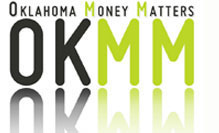Step 2, Part 2: What Do I Want?
Page 6 of 17
Buying vs. Leasing
 Buying and leasing are two ways to get a vehicle. You’ll want to understand the differences between them and analyze their impact on your finances. But it’s not just about the money. You'll also need to consider how your personal preferences will affect which of these methods is right for you.
Buying and leasing are two ways to get a vehicle. You’ll want to understand the differences between them and analyze their impact on your finances. But it’s not just about the money. You'll also need to consider how your personal preferences will affect which of these methods is right for you.
Buying a car means you pay the entire cost of the vehicle. You often make a down payment and finance the difference with a loan. The interest rate of your loan is determined by the lender and is based on your credit rating. Sales taxes are paid up front or rolled into the loan. If you decide to sell or trade the vehicle, you’ll do so for its depreciated resale value. Buying may help you build equity or assets. However, if you extend a car loan out to five or six years, you risk making payments on a car that’s not worth what you owe.
This is called being “upside down” on your loan. The longer you own your car and the more you pay on the loan, the closer you’ll come to being “right side up!” And if you take good care of it, you’ll be able to sell or trade the car for a profit.
Leasing a car means that you pay a portion of the vehicle’s cost equal to the time and/or mileage that you “use up” while you drive the vehicle. You don’t have to make a down payment, sales tax will only be charged on your monthly payments (in most states) and often you’ll pay fees or security deposits. When your lease ends, you can return the vehicle or purchase it for its depreciated resale value.
The benefit of a lease contract is that you can often get a lower down payment and a lower monthly payment. You also won't have to worry about trading in or selling your car when you're ready for a new one.
How do you know which to choose? Here are a few simple questions that can help you decide.
How many miles do you drive in one year?
Leased cars often come with annual mileage limits and going over the limit can be costly. So carefully consider your driving habits, such as your daily commute, before diving into a lease.
Do you want the latest safety features and gadgets?
Leasing offers consumers the chance to drive a new vehicle every few years. If you can’t resist the urge to change vehicles every couple of years, leasing can help save you a great deal of money. You also won’t have to worry about trading or selling your car when you’re ready for a new one.
How do you feel about payments?
Leasing may mean variety and a lower payment, but it can also mean a permanent payment. Despite the money you pay each month, if you continue to lease, you’ll always have a car payment and own nothing at the end of the lease.
If you’re more interested in owning a vehicle, buying may be the right option. Buying gives you the chance to build equity and the freedom to sell the car if you can't make the payments.
Do you take good care of your vehicles?
Damage matters in a leased vehicle. Remember, it’s not your car, so if you’re prone to dripping ketchup on the seat covers or hauling brush in your vehicle, leasing may not be right for you. You should also consider the benefits of taking good care of any vehicle you purchase too — you might be able to sell or trade the car for a profit.
Do you like to personalize your vehicle?
If you’re planning to add a rear spoiler, flames and hydraulics to your vehicle, then leasing isn’t for you. Again, the car belongs to the leasing company, so you have no rights to modification.
Do you foresee any major lifestyle changes?
Getting out of a lease can be a costly headache. If you have plans to expand your family or open a new business, consider whether the car you lease will continue to accommodate your needs as life changes. If you purchase a car, you’ll have the freedom to sell it if you need to accommodate changes in your lifestyle.
After you’ve answered these questions, you should have a better idea of whether buying or leasing is best for you. If you know what you want ahead of time, you’ll have more leverage to bargain with the dealer. Now, let’s look at the numbers.


